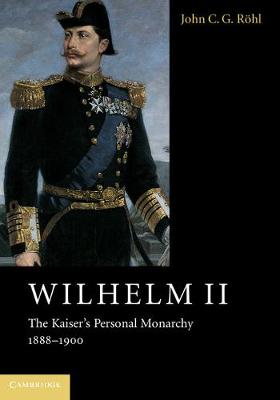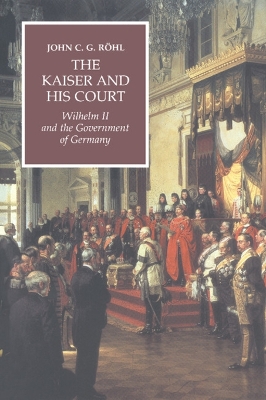Wilhelm II 3 Volume Hardback Set
2 total works
Kaiser Wilhelm II (1859-1941) ruled Imperial Germany from his accession in 1888 to his enforced abdication in 1918 at the end of the First World War. This book, based on a wealth of previously unpublished archival material, provides the most detailed account ever written of the first half of his reign. Following on from the author's highly acclaimed Young Wilhelm (1998), the volume demonstrates the monarch's dynastic arrogance and the wounding abuse he showered on his own people as, step by step, he built up his personal power. His thirst for glory, his overweening nationalism and militarism, and his passion for the navy provided the impetus for a breathtaking long-term goal: the transformation of the German Reich into the foremost power in the world. Soon the predictable consequences - constitutional crisis at home and diplomatic isolation abroad - began to make their alarming appearance.
Kaiser Wilhelm II, Queen Victoria's eldest grandchild, took over the running of the powerful German Reich from Bismarck and within a couple of decades had led it into world war and collapse. How did the Kaiser come to have so much power? Why was there no one to help him steer a less disastrous course? This book analyses these crucial questions with the help of a wealth of new archival sources. The book begins with a character-sketch of the Kaiser which provides new and alarming insights into his personality. It then looks, crucially, at the Kaiser's friends and favourites, the neo-absolutist culture of the court and of Berlin court society, and at the nature of his relationship with the court on the one hand and with the administrative 'pyramid' in Prussia and the Reich on the other. The book makes clear that these bureaucrats and diplomats had neither the means nor the will to oppose the overwhelming determination of the Kaiser and his close friends and advisers in directing the policies of the most dynamic and volatile state in Europe. The dangerous consequences of this situation led to the brink of world war as early as December 1912. A final chapter reveals for the first time the appalling extent and nature of the exiled Kaiser's anti-semitism.

